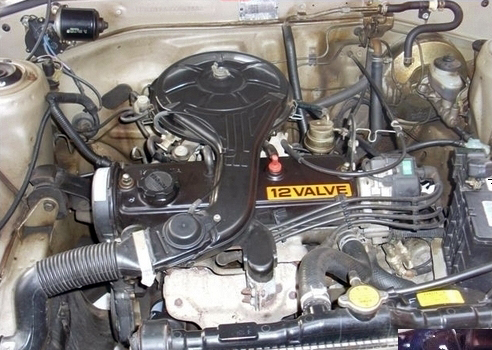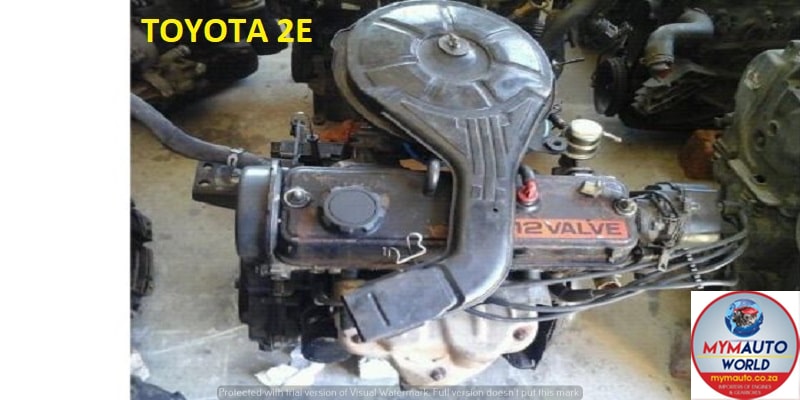Discover Reliable Toyota Tazz Engine for Sale: Auto Components Depot
Discover Reliable Toyota Tazz Engine for Sale: Auto Components Depot
Blog Article
Engine Purchasing Specialist Tips on Picking the Right Engine for Your Specific Needs
Choosing the right engine for your specific demands includes a complex interplay of factors that go past simple horsepower numbers. By delving into the details of power versus performance, examining fuel rankings, and budgeting for long-lasting costs, one can absolutely maximize their engine choice.
Power Vs. Efficiency: Discovering the Balance

When selecting an engine, it is important to strike a balance between power and performance to satisfy your particular requirements successfully. Power refers to the engine's capacity to create energy for propulsion, determining variables like velocity, pulling capacity, and total performance (Toyota Tazz Engine For Sale). On the other hand, performance connects to how well the engine utilizes gas to generate power, influencing elements such as gas economic climate and environmental friendliness
Attaining the appropriate balance in between power and efficiency is crucial due to the fact that an engine that is too effective might consume too much fuel, leading to greater operating expense and unneeded strain on the atmosphere. On the other hand, an engine that prioritizes effectiveness over power may lead to slow-moving performance, specifically sought after situations like pulling hefty loads or driving uphill.
To make an educated decision, think about aspects such as your common driving conditions, the desired use the automobile, and your individual preferences. By assessing your requirements and priorities, you can choose an engine that strikes the best equilibrium in between power and performance, guaranteeing ideal efficiency while decreasing environmental effect and operating expense.
Understanding Engine Size and Type

Additionally, engine type plays an important function in figuring out the performance qualities of an engine. Typical engine types include inline engines, V engines, and rotary engines, each with its distinct advantages and drawbacks. The engine type affects elements such as the engine's size, weight circulation, and power distribution. Recognizing the interplay between engine dimension and kind is crucial in choosing an engine that lines up with your particular demands and concerns, whether it be power, efficiency, or an equilibrium of both.
Consider Your Automobile's Requirements
If you are looking for an engine for a durable vehicle that will certainly be utilized for towing, you will certainly need an effective engine with high torque capacities. On the various other hand, if you are choosing an engine for a portable vehicle mostly made use of for city travelling, fuel effectiveness may be an extra essential factor to think about.

Evaluating Gas Effectiveness Ratings
Assessing gas efficiency rankings is a critical facet of picking the ideal engine for your automobile, making sure price financial savings and ecological sustainability. Fuel efficiency ratings, typically measured in miles per gallon (MPG) for fuel engines or kilowatt-hours per 100 miles (kWh/100 miles) for electric engines, indicate just how much a car can travel on a details quantity of gas or electrical power. Higher MPG or reduced kWh/100 miles values signify extra effective engines, translating to lowered fuel prices and lower carbon emissions.
When reviewing gas efficiency rankings, consider your driving habits and needs. If you commute cross countries daily, an extremely fuel-efficient engine can result in substantial cost savings in time. Furthermore, contrast different engine alternatives within the exact same car course to determine one of the most economical selection. Factors such as engine dimension, weight, the rules of aerodynamics, and visit site crossbreed or electric abilities can all affect fuel performance.
Budgeting for Long-Term Prices
Strategically intending for lasting expenses is imperative when choosing an engine, making certain economic sustainability over the car's life expectancy. While the first purchase price of an engine is a considerable variable, it is essential to think about the lasting costs related to maintenance, repair services, and gas intake. Choosing an extra fuel-efficient engine may have a higher in advance expense yet can cause significant savings over time. Regular maintenance, such as oil modifications, filter replacements, and tune-ups, is important to maintain the engine running efficiently and efficiently, decreasing the danger of expensive repair services down the line.
Additionally, researching the accessibility and price of substitute parts for the chosen engine is vital in budget plan preparation. By thoroughly budgeting for these lasting expenses and factoring these details them into the decision-making procedure, individuals can choose an engine that not just meets their prompt needs however additionally remains economical throughout its lifespan.
Final Thought
To conclude, selecting the ideal engine for your specific needs needs stabilizing power and performance, understanding engine size and type, considering your lorry's requirements, assessing fuel effectiveness rankings, and budgeting for long-term costs. By thoroughly taking into consideration these factors, you can guarantee that you select an engine that satisfies your requirements and gives optimum efficiency for your vehicle.
To even more fine-tune the choice process of an engine that strikes the ideal equilibrium in between power and performance, it is important to dig into the ins and outs of comprehending engine dimension and type. Engine size refers to the overall quantity of air and fuel that can be pushed through the engine cylinders. Common engine types consist of inline engines, V engines, and rotating engines, each with its unique advantages and drawbacks. Understanding the interplay in between engine dimension and kind is crucial in choosing an engine that straightens with your certain requirements and concerns, whether it be power, efficiency, or a balance of both.
Gas performance scores, typically measured in miles per gallon (MPG) for fuel engines or kilowatt-hours per 100 miles (kWh/100 miles) for electrical engines, suggest how far a lorry can take a trip on a particular amount of fuel or electrical energy.
Report this page